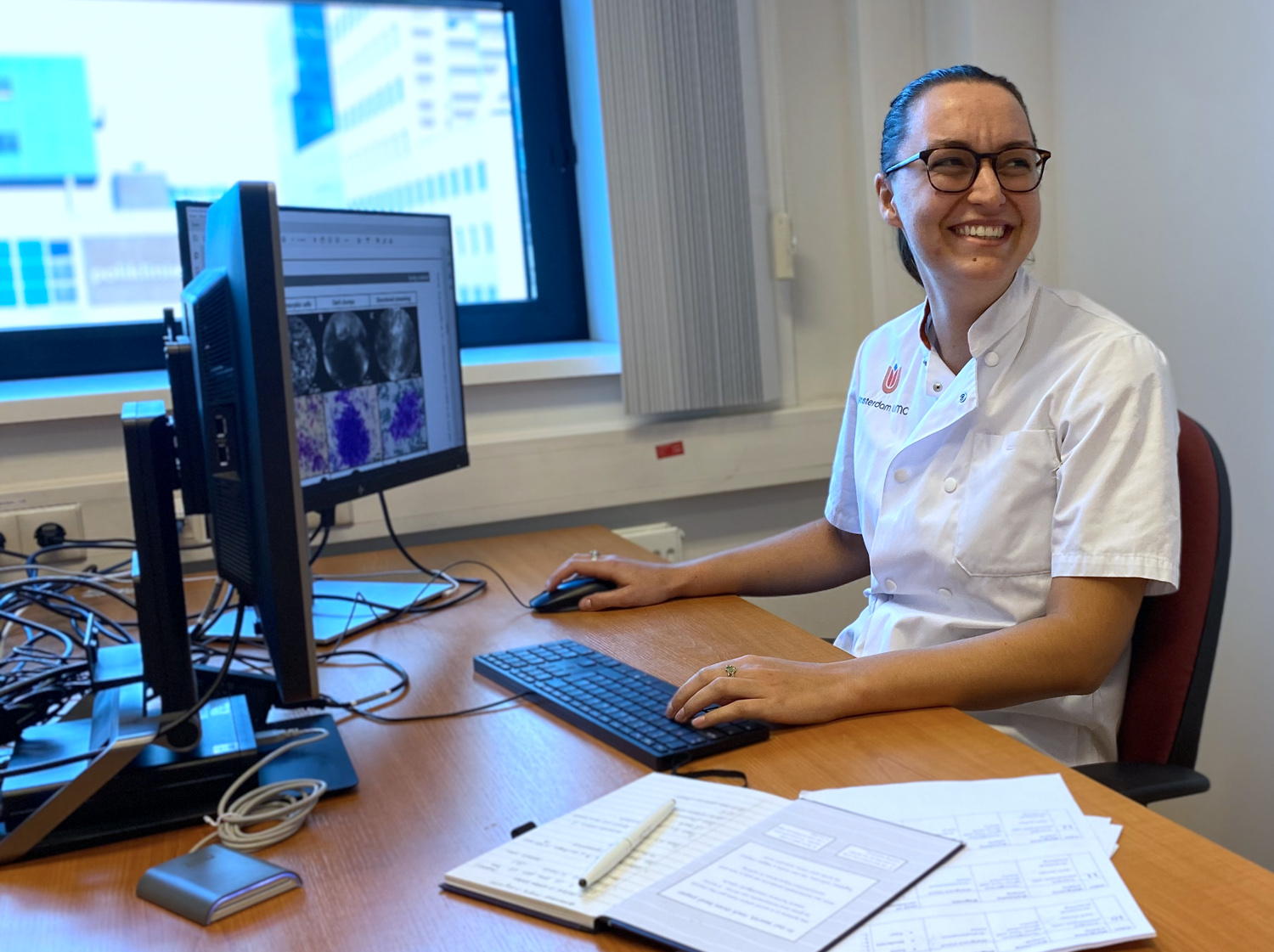Saskia van Heumen is the best graduating student of 2022. “My graduation project helps me know what I am capable of doing. I went into job applications with that in mind.”
“Prepare well for meetings,” advises Saskia van Heumen. (Photo: Private collection Saskia van Heumen)
Having earned a ’10’, Saskia van Heumen said goodbye to TU Delft almost a year ago. For her graduation project for her master’s degree in Technical Medicine (Faculty of Mechanical Engineering, Maritime Engineering & Materials Engineering), she developed a method to accurately image lymphatic vessels in patients. This enables very precise surgery in patients with lymphedema – a possible consequence of chemotherapy – fighting breast cancer. She was awarded the TU Delft Best Graduate Award for this on 22 November. What has she been working on since graduation?
You have had your degree in your pocket for almost a year. Are you working?
“I started at my new workplace at Amsterdam UMC three weeks ago. When I graduated, the clinical study of my graduation project had not yet been completed. I worked on that part-time for another six months. The resulting article has now been handed in.”
How did you get your job?
“A friend tipped me off on a PhD position at the Department of Pulmonary Diseases at the Amsterdam UMC. They were looking for someone with a medical engineering background. I phoned the Professor leading the research and was able to join them twice. The first time I was allowed to watch the bronchoscopy, the medical procedure the research is about. I also met the PhD students and was able to ask them questions. The second time, I met the biomedical engineers involved. The subject seemed very interesting and we had a good click, so I got the job.”
What will you be doing at Amsterdam UMC?
“I’ve only been there for a short time, so it’s all still taking shape. The aim of the research is to use innovative imaging to make a definitive lung cancer diagnosis in more patients during bronchoscopy, a visual examination of the lungs. This is currently not always possible because we cannot always take a biopsy at the right spot. We will investigate whether imaging leads to better diagnostics in clinical studies.
I get the opportunity to use my own medical-technical input. For example, I could do automatic analyses of the images, a piece of technology that a physician-researcher would otherwise not do.
Once the research project is up and running, I will probably have some interesting sub-questions for students to explore. And in a while, I’ll probably also start giving lectures and supervising students, which seems like a lot of fun to do.”
Did your graduation research help you get this job?
“Absolutely. I gained a lot of experience in a short time and was able to do a lot of research during my graduation project. That also gave me some self-confidence. Having done my internships and thesis project, I don’t feel like I just came out of university. I know what I am capable of doing. With that in mind, I submitted the job applications.”
Do you have any tips for students who are planning to graduate?
“I always went into meetings well prepared when I was graduating. That was appreciated. Asking critical questions or saying you disagree with something is fine, but you need to be able to substantiate it. That’s where the preparation comes in. It helps define follow-up steps faster in meetings, which improves the research project. And make sure you have an affinity with your graduation topic, that is very important. Everything is so much easier when it’s fun!”
- The Best Graduate Award Ceremony is organised by the Delft University Fund. One candidate from each faculty who received an exceptionally high mark for his or her graduation research is nominated.
- Read the stories of all eight graduates here.
Carmen Geukers / Freelance wetenschapsjournalist



Comments are closed.